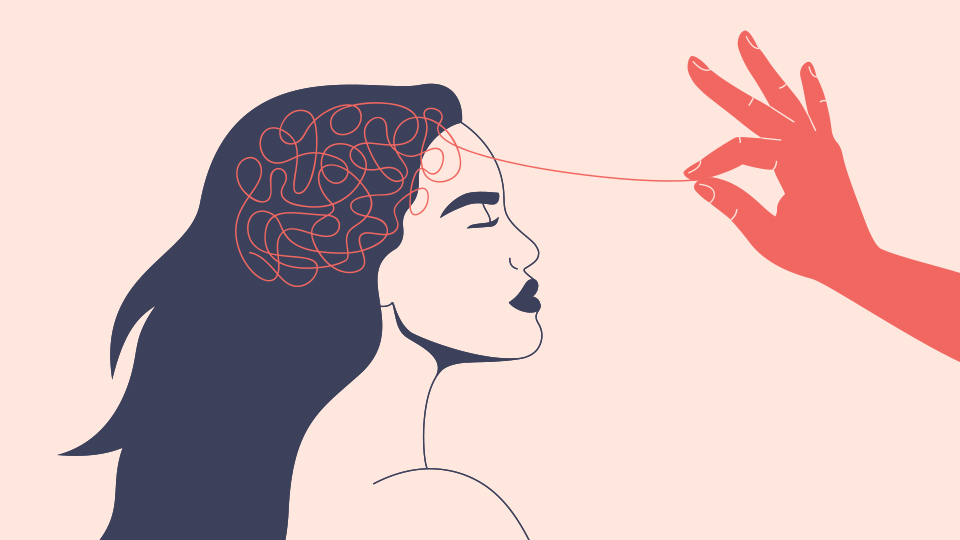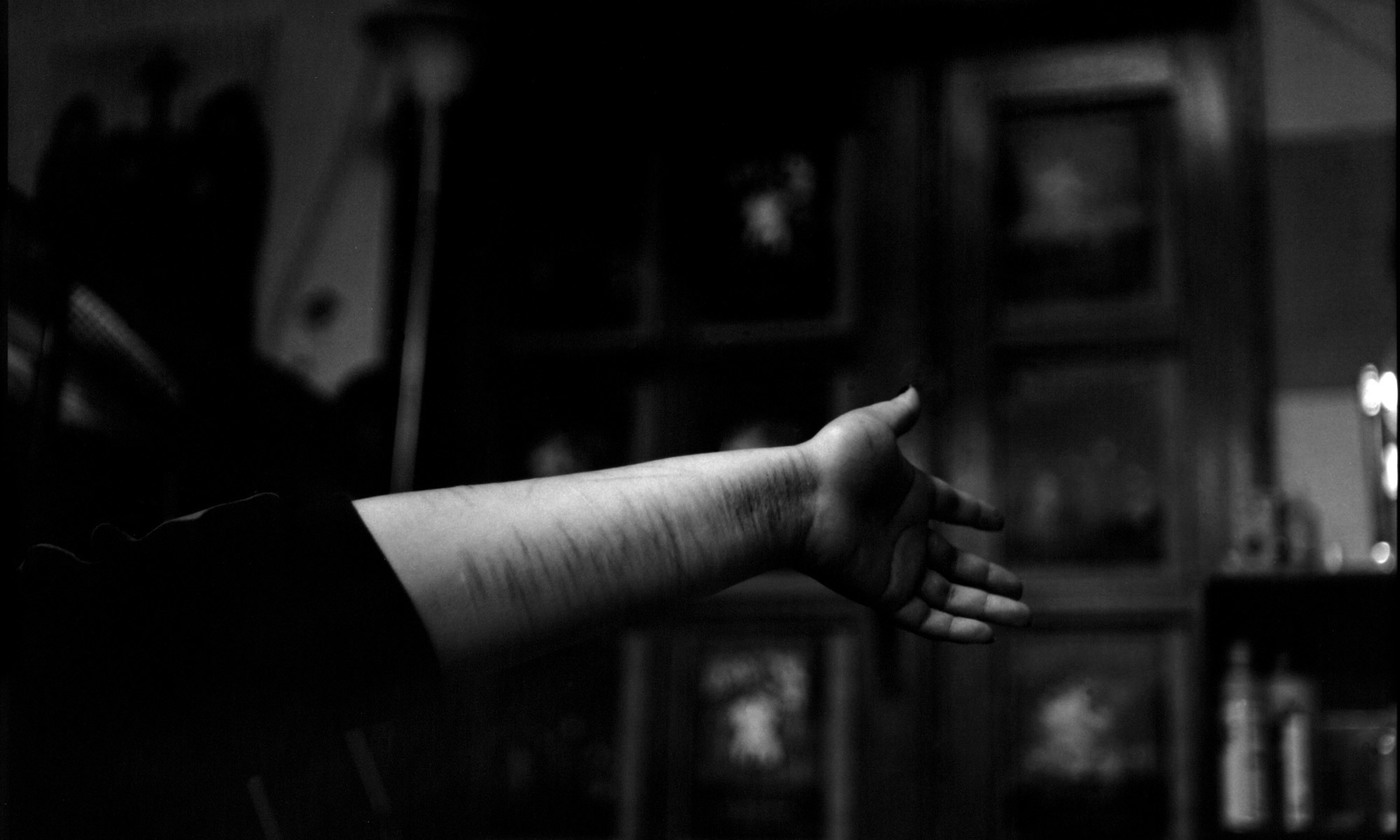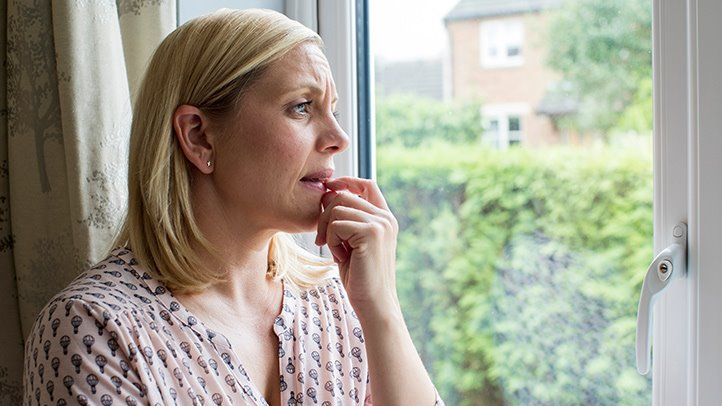Agoraphobia is the fear of the unknown. People who suffer from agoraphobia often feel trapped and helpless in open or public places. They may worry that something bad will happen if they leave their homes, or that they will have a panic attack in a public place. If you are struggling with agoraphobia, don’t despair! There are things you can do to overcome your fears and start living a normal life again. In this blog post, we will discuss what agoraphobia is, the symptoms, and how you can get help. We will also provide some tips for coping with agoraphobia on your own.
Contents
What Is Agoraphobia?
 Agoraphobia is an anxiety disorder characterized by fear of public places and situations. People with agoraphobia often avoid crowded areas, such as shopping malls or movie theaters, because they fear being trapped or unable to escape if something goes wrong. Agoraphobia can also cause people to avoid leaving their homes altogether.
Agoraphobia is an anxiety disorder characterized by fear of public places and situations. People with agoraphobia often avoid crowded areas, such as shopping malls or movie theaters, because they fear being trapped or unable to escape if something goes wrong. Agoraphobia can also cause people to avoid leaving their homes altogether.
Agoraphobia is caused by a combination of genetic and environmental factors. Some people may be born with a predisposition for the disorder, which may be triggered by a traumatic event, such as a car accident or mugging.
This type of anxiety can be crippling, making it difficult to go about your daily life. If you’re struggling with agoraphobia, there are some things you can do to ease your anxiety and get back to living a normal life. Sometimes, all it takes is a little bit of exposure to the thing you’re afraid of, gradually working your way up to facing your fears head-on. If that doesn’t work, there are also medications and therapy options available.
If you think you might be suffering from agoraphobia, talk to your doctor. They can help you get the treatment you need to start living a normal life again. Agoraphobia can be a difficult disorder to live with, but there are ways to manage it and get back to living a normal life. With the right treatment plan, agoraphobia doesn’t have to control your life.
Types of Agoraphobia

There are many types of agoraphobia. The most common are:
Social agoraphobia
Social agoraphobia is a fear of social situations. This may include fear of public speaking, performance anxiety, or any situation where a person feels they may be judged. People with social agoraphobia often avoid work, school, or any situation where they have to interact with others.
Agoraphobia without panic disorder
Agoraphobia without panic disorder is a fear of situations that may cause anxiety or panic attacks. However, the person does not experience panic attacks in these situations. They may avoid places like bridges or crowded areas because they’re afraid of having a panic attack. Or, they may avoid any situation that they think may be difficult to escape from if they have a panic attack.
Paranoid Agoraphobia
Intense fear of being alone in public or away from home. People with paranoid agoraphobia often avoid leaving their house for fear of being attacked, kidnapped, or killed. This type of agoraphobia is often comorbid with a paranoid personality disorder. Sometimes there may also be a fear of going outside because of environmental hazards, such as toxic chemicals or radiation.
Situational agoraphobia
Situational agoraphobia is a fear of specific situations, such as flying, driving, or going to the dentist. People with situational agoraphobia often avoid these situations because they’re afraid of having a panic attack. This type of agoraphobia is often comorbid with specific phobias, such as aviophobia (fear of flying) or claustrophobia (fear of enclosed spaces).
Disorganized agoraphobia
This is an anxiety disorder that is characterized by avoidance of public places and situations due to a fear of losing control, becoming embarrassed, or being unable to escape if a panic attack occurs. People with disorganized agoraphobia often have difficulty making plans or decisions because they’re afraid of triggering a panic attack. This type of agoraphobia is often comorbid with other anxiety disorders, such as OCD or social anxiety disorder.
Claustrophobia
Another type of agoraphobia is claustrophobia, which is a fear of enclosed spaces. This may include elevators, small rooms, or any place where a person feels trapped. People with claustrophobia often avoid these situations because they’re afraid of having a panic attack. Claustrophobia is often comorbid with other anxiety disorders, such as social anxiety disorder or specific phobias.
Signs of Agoraphobia

There are many signs of agoraphobia, and they vary from person to person. Some people may experience one or two symptoms, while others may experience several. The most common symptoms include:
Avoiding situations that may cause anxiety or panic
This is the most defining symptom of agoraphobia. People with agoraphobia avoid situations that they believe may trigger a panic attack or cause them to feel trapped, helpless, or embarrassed. There may be certain places, such as bridges or crowded areas, that a person with agoraphobia will avoid. Or, a person may avoid any situation that they think may be difficult to escape from if they have a panic attack.
Experiencing anxiety when away from home or in public
For people with agoraphobia, being away from the safety of home can trigger intense anxiety. This may cause them to feel like they’re “stuck” or unable to escape if they have a panic attack. In some cases, this anxiety may be so severe that a person is unable to leave their home. When agoraphobia is this severe, it’s often referred to as “housebound agoraphobia.”
Anxiety
One of the main symptoms of agoraphobia is anxiety. This can be a feeling of overwhelming fear or panic. You may also feel like something bad is going to happen to you. You may have trouble breathing and your heart may race. These feelings can be very intense and can make it hard for you to function in your everyday life.
Feeling dizzy, short of breath, or like you’re going to faint
These are all common symptoms of anxiety and panic attacks. People with agoraphobia may avoid situations that trigger these sensations. For example, they may avoid driving because they fear having a panic attack while behind the wheel.
heart palpitations or chest pain
Again, these are common symptoms of anxiety and panic attacks. People with agoraphobia may avoid exercise or any physical activity that could trigger them. Sometimes, the fear of having a heart attack can be so severe that people with agoraphobia avoid any type of physical activity, even walking.
Sweating, trembling, or feeling shaky
These are all common symptoms of anxiety and panic attacks. People with agoraphobia may avoid situations that trigger these sensations. For example, they may avoid public speaking because they fear having a panic attack in front of others.
feeling detached from reality or like you’re going crazy
These are both symptoms of a condition called depersonalization/derealization disorder (DPD). DPD is often comorbid with anxiety disorders, including agoraphobia. People with DPD may feel like they’re observing themselves from outside their body or like the world around them is not real. This can be very frightening and may cause a person to avoid situations where they feel these symptoms.
Avoiding activities or situations due to fear of panic attacks
People with agoraphobia often avoid activities or situations due to fear of having a panic attack. For example, they may avoid going to the grocery store because they’re afraid of having a panic attack in public. Or, they may avoid exercise because they’re afraid of having a heart attack. The avoidance can become so severe that it interferes with a person’s ability to work, go to school, or take care of their basic needs.
Causes of Agoraphobia

There are many different causes of agoraphobia. Some of these are:
Traumatic Event
One of the main causes of agoraphobia is a traumatic event. This could be something like a car accident, a bad fall, or even just a really scary event that happened to you when you were younger. If you have experienced something like this, it can be hard to feel safe in any situation where something similar could happen again.
Genetics
Agoraphobia can also be caused by genetics. If someone in your family has the disorder, you are more likely to develop it as well. Through genetics can also come a fear of crowds or open spaces. This is because your brain is wired to be more alert and on the lookout for danger in these situations.
Brain Chemistry
Another cause of agoraphobia can be imbalances in your brain chemistry. If you have a serotonin imbalance, it can lead to anxiety and panic disorders, both of which can trigger agoraphobia. A dopamine imbalance can also cause this disorder as well as symptoms like depression, fatigue, and irritability.
Medical Conditions
Certain medical conditions can also be a cause of agoraphobia. These include heart conditions, thyroid problems, asthma, and migraines. If you have any of these conditions, you may be more likely to develop agoraphobia. Also, if you have had a panic attack in the past, you are more likely to have agoraphobia.
Mental Health Conditions
Anxiety and depression are two mental health conditions that can lead to agoraphobia. If you have either of these, you may be more likely to develop the disorder. People who have social anxiety or specific phobias are also at a higher risk for agoraphobia. Sometimes, the fear of having a panic attack can lead to agoraphobia as well.
Sexual Abuse
One of the main causes of agoraphobia in women is sexual abuse. This can be a very traumatic experience that leads to a fear of crowds and open spaces. If you have been sexually abused, it is important to get help so that you can deal with the trauma and begin to heal.
Another cause of agoraphobia is divorce. This can be a very stressful and difficult time in your life. If you are going through a divorce, you may be more likely to develop agoraphobia. This is because you may feel like you have no control over what is happening in your life.
Loss of a Job
If you have lost your job, this can also lead to agoraphobia. This is because you may feel like you have no control over your life and that anything could happen at any time. This can be a very scary feeling and can lead to agoraphobia.
As you can see, there are many different causes of agoraphobia. If you think that you may have the disorder, it is important to talk to your doctor. They can help you get the treatment that you need so that you can start to feel better.
Negative Impacts of Agoraphobia

Agoraphobia can have many negative impacts on a person’s life, including making it difficult to:
Thoughts of Self-harm
One of the main negative impacts agoraphobia can have on a person’s life is making it difficult to control thoughts of self-harm. People with agoraphobia often feel like they are in danger when they are in public places, which can lead to intrusive thoughts about harming themselves. These thoughts can be very distressing and may even lead to attempts at self-harm.
Avoidance of Social Situations
Another negative impact of agoraphobia is avoidance of social situations. People with agoraphobia often avoid going to places where there will be large crowds or where they might feel trapped, such as shopping malls or airplanes. This avoidance can lead to social isolation and loneliness.
Difficulty Holding a Job
Agoraphobia can also make it difficult to hold a job. People with agoraphobia may avoid work or school because they are afraid of having a panic attack in public. This can lead to lost productivity and missed opportunities. Many jobs require travel, which can be difficult for people with agoraphobia.
Feeling Out of Control
People with agoraphobia often feel out of control. They may feel like they are not in control of their own lives and that their phobia is controlling them. This can lead to feelings of hopelessness and despair. These also be very distressing and may make it difficult to seek treatment.
Constant Worry
People with agoraphobia often worry about having a panic attack or being in a situation where they cannot escape. This worry can be constant and may even lead to anxiety and depression. It is important to seek treatment for agoraphobia if these feelings are negatively impacting your life.
These are some of the impacts of agoraphobia. If you or someone you know is struggling with this condition, please seek help from a mental health professional.
Treatment Options of It

Treating agoraphobia can be difficult, as it is often intertwined with other mental health conditions, such as panic disorder and depression. However, there are several effective treatments available. Some of these are:
Medications
One of the mainstay treatments for agoraphobia is medication. Selective serotonin reuptake inhibitors (SSRIs) are a type of antidepressant that can be very effective in treating panic disorder, and they are often used to treat agoraphobia as well. Benzodiazepines are another type of medication that can help reduce anxiety. However, they can be addictive and should only be used on a short-term basis.
Cognitive-Behavioral Therapy
Cognitive-behavioral therapy (CBT) is a type of psychotherapy that is effective in treating agoraphobia. CBT focuses on helping people change their thinking patterns and behaviors. It teaches people how to handle anxiety and fear, and how to cope with panic attacks. CBT also helps people identify and avoid situations that trigger their anxiety.
Exposure therapy is a type of CBT that involves gradually exposing people to the situations they fear. This can help people overcome their fear and learn to cope with anxiety-provoking situations. Exposure therapy is often done in combination with other types of treatment, such as relaxation techniques.
Support Groups
Support groups provide a way for people with agoraphobia to connect with others who are going through similar experiences. These groups can provide social support, information, and coping strategies. Many support groups also offer online resources. These can be a helpful way to connect with others and get support when you need it.
Applied Relaxation
One of the techniques that can be used in exposure therapy is applied relaxation. This involves learning how to relax your body in response to anxiety-provoking situations. Applied relaxation can help you feel more calm and relaxed, and it can make exposure therapy more effective.
Self-Care
One of the main goals of treatment for agoraphobia is to help you learn how to care for yourself. Some of these activities for agoraphobia:
- Exercises
One of the best things you can do for your agoraphobia is to get regular exercise. Exercise releases endorphins, which have mood-boosting effects. It also helps to reduce stress and anxiety.
- Deep Breathing
Another self-care activity that can help with agoraphobia is deep breathing. This helps to slow down your heart rate and relax your body. Deep breathing is a simple but effective way to reduce anxiety and cope with panic attacks.
- Yoga
Yoga is another excellent self-care activity for agoraphobia. Also, Yoga helps to combine deep breathing with physical activity, which can help to boost your mood and reduce anxiety. Yoga can also help you learn how to better cope with stressful situations.
- Relaxations Techniques
Several relaxation techniques can help manage agoraphobia. Some of these include progressive muscle relaxation, yoga, and meditation. Relaxation techniques can help to reduce anxiety and improve your overall sense of well-being.
Conclusion
Agoraphobia is a serious anxiety disorder that can have a significant impact on your ability to function in day-to-day life. If you think you may be suffering from agoraphobia, it’s important to seek professional help. Treatment for agoraphobia typically includes exposure therapy and medication. With proper treatment, most people with agoraphobia can live normal, productive lives.
Hope this article was of help to you! If you are suffering from agoraphobia, you may seek help from Therapy Mantra. We have a team of highly trained and experienced therapists who can provide you with the tools and skills necessary for overcoming agoraphobia. Contact us today to schedule an online therapy or download our free Android or iOS app for more information.


